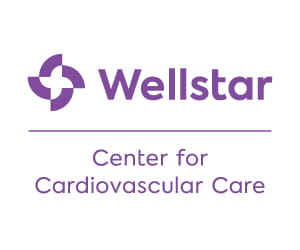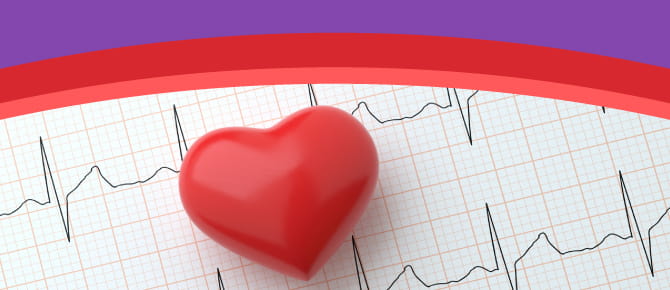
Advanced Heart Failure Care
About
Complex Heart Failure Experts
Physicians who specialize in advanced heart failure have training and expertise beyond general cardiologists or internists. We help people manage severe heart failure and most types of cardiomyopathies with the most advanced treatments and the latest surgical and non-surgical techniques.
Each patient is unique—our focus is to create and help you implement the most personalized plan to help reduce symptoms and improve your quality of life. Some patients benefit from specialized medication and devices as well as non-surgical treatments to widen valves or open blocked arteries. For others, the best option may be open-heart surgery. We refer patients for transplant therapy if appropriate.
Treatments may include:
- Goal directed medical management: Choosing the right combination of medications can be tricky. Our advanced HF providers have the expertise to order the right combination of medicines to reduce symptoms, prevent hospital admissions, and increase quality of life. You will be seen regularly at the Heart Failure Clinic to manage your symptoms.
- Access to the HF multidisciplinary team: Includes highly-trained cardiologists, nurse practitioners, cardiothoracic surgeons, HF coordinator, pharmacists, dietitians, nurses, social workers, and palliative care providers.
- CardioMEMS HF System: A device that allows us to remotely identify the fluid load on your heart prior to you ever experiencing symptoms of shortness of breath and swelling. This means we can treat you faster.
- Ventricular Assist Device (VAD): A device that helps the ventricles of the heart pump blood to the rest of the body. The VAD can be surgically implanted in patients who have severe heart failure with limited options.
Advanced Heart Failure at Wellstar
Certifications & Recognitions
Wellstar Kennestone Regional Medical Center is the first in Georgia and the fourth in the nation to receive the highest certification in cardiovascular care—the Comprehensive Cardiac Care Center Certification—by The Joint Commission and American Heart Association.
As a Center of Excellence designated by the Hypertrophic Cardiomyopathy Association, Wellstar is one of the leading locations offering comprehensive hypertrophic cardiomyopathy care in metro Atlanta.
Causes of Heart Failure
The term heart failure means that the heart is struggling to keep up with its workload. Your body depends on the heart’s pumping action to deliver oxygen and nutrient-rich blood to your cells. With heart failure, the heart muscle is unable to pump enough blood to meet your body’s needs. Most people who develop heart failure have (or have had) another heart condition. The most common conditions that can lead to heart failure are: Coronary artery disease
High blood pressure
Previous heart attack
Risk Factors
Family history (genetics)
History of heart attacks
Other factors can be modified, treated or controlled through medication or lifestyle changes, such as:
- Diabetes
- Excessive consumption of alcohol over the years
- Obesity or having a body mass index “BMI” of 30 or greater
- Smoking and/or drug use
- Cardiomyopathy
- Congenital heart disease
- Heart valve disease
- Heart arrhythmias (irregular beats)
- Low red blood cell count
- Myocarditis
- Severe lung disease
- Thyroid disease
Ejection Fraction
An important term to understand is ejection fraction (EF). Your EF reflects how well your left ventricle (or right ventricle) is pumping blood with each heartbeat. Your EF can go up and down based on your heart condition and how well your treatment is working.
Ejection fraction (55-70%): Heart’s pumping ability is normal. However, even though heart function is normal you may have heart failure with preserved EF (HFpEF).
Ejection fraction (40-54%): Heart’s pumping ability is slightly below normal.
Ejection fraction (35-39%): Heart’s pumping ability is moderately below normal. This could mean that you have heart failure with reduced EF (HFrEF).
Ejection fraction (less than 35%): Heart’s pumping ability is severely below normal. Severe heart failure with a low EF increases the risk of life-threatening conditions.
Symptoms
Symptoms of heart failure can range from mild to severe and can come and go. There may be times when you have no symptoms at all, but be aware, this doesn't mean your heart failure is gone. Unfortunately, it will continue to get worse over time. You may experience more (or different) signs and symptoms. If this happens, it is essential to let your doctor know! Symptoms can include, but are not limited to:- Confusion or impaired thinking
- Decreased appetite
- Persistent cough or wheezing with white or pink blood-tinged phlegm
- Rapid weight gain from fluid
- Rapid heart rate (tachycardia) of more than 100 beats per minute
- Shortness of breath
- Swelling of the legs, ankles, feet and abdomen
Diagnosis
To diagnose heart failure, your doctor will carefully review your medical history, symptoms and perform a physical examination. Using a stethoscope, your doctor can also listen to your lungs for signs of congestion and for any abnormal heart sounds. They may examine the veins in your neck and check for fluid buildup in your abdomen and legs as well. After that you may have:- Blood tests
- X-rays
- Echocardiogram (ECHO)
- Electrocardiogram (EKG/ECG)
- Stress test
- Cardiac catheterization
- Magnetic resonance imaging (MRI)
Treatments We Offer
- Left ventricular assist device (LVAD)
- Home inotrope infusion
- CardioMEMS
- Cardiac resynchronization therapy (CRT) and implantable cardioverter-defibrillator (ICD)
- HeartLogicTM remote heart failure monitoring system
- Barostim
- Optimizer Smart Mini
- Heart Failure Home Health Program
- Palliative care
- Heart failure clinics
- Clinical trials
Lifelong Management
Heart failure is a chronic disease that will need lifelong management. With treatment, signs and symptoms of HF can improve and your heart may even become stronger. Here's what you can do:- Track your daily fluid intake
- Participate in our cardiac rehabilitation program
- Get no more than 7-8 hours of sleep per night
- Avoid or limit caffeine consumption
- Keep track of your symptoms
- Manage your stress
- Make and keep appointments to see your doctor
- Avoid alcohol and smoking
- Eat a heart-healthy diet
- If you are overweight, talk to your doctor about weight loss options






